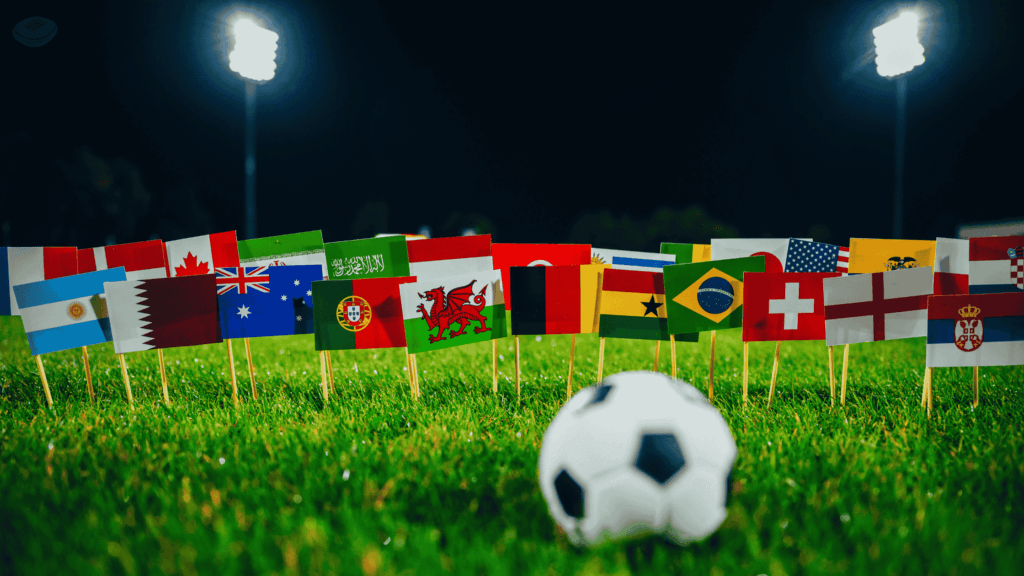Saudi Arabia’s successful bid to host the 2034 FIFA World Cup marks a pivotal moment not only for sports but also for the nation’s economic and infrastructural growth. The event is expected to significantly transform Saudi Arabia’s real estate sector, aligning with its Vision 2030 goals to diversify the economy and elevate its global stature. This article delves into the anticipated impact of the World Cup on real estate development, urban planning, and investment opportunities in the Kingdom.
Transforming Saudi Arabia’s Real Estate Landscape
The 2034 FIFA World Cup is a catalyst for unparalleled growth in Saudi Arabia’s real estate sector. Hosting such a global event requires substantial upgrades in infrastructure, accommodation, and public spaces, all of which present opportunities for investors, developers, and local businesses.
Vision 2030 and Real Estate Growth
Saudi Arabia’s Vision 2030 framework plays a pivotal role in shaping the country’s real estate dynamics. It emphasizes urban development, sustainability, and economic diversification. The World Cup acts as an accelerant, fast-tracking the completion of mega-projects and boosting the country’s appeal to global investors.
Key Vision 2030 real estate projects include:
- NEOM City: A $500 billion futuristic city designed to showcase smart urban living and innovation.
- The Red Sea Project: A luxury tourism development offering eco-friendly resorts and residences.
- Diriyah Gate Development: A heritage-focused project combining cultural tourism with modern real estate.
These projects are already attracting international attention and will gain further momentum as the World Cup approaches.
Infrastructure Development: The Backbone of Transformation
Hosting a mega-event like the FIFA World Cup demands world-class infrastructure, ranging from stadiums and airports to transportation networks and residential housing. The Kingdom is allocating billions of dollars to ensure seamless connectivity and state-of-the-art facilities.
Stadium Construction and Surrounding Developments
Saudi Arabia plans to build or upgrade numerous stadiums across major cities like Riyadh, Jeddah, and Dammam. These facilities will not only host matches but also drive development in nearby areas, including:
- Residential Zones: High-demand housing projects for tourists, players, and officials.
- Commercial Hubs: Retail centers, restaurants, and entertainment venues near stadiums.
Enhanced Transportation Networks
To accommodate millions of visitors, Saudi Arabia is focusing on upgrading its transportation infrastructure:
- Riyadh Metro Expansion: A state-of-the-art public transport system aimed at reducing congestion and connecting key venues.
- Airports: Modernization of airports like King Abdulaziz International Airport and the development of new terminals.
- Road Infrastructure: Highways and smart traffic systems to ensure smooth travel during the event.
Real Estate Demand: Residential and Commercial Growth
The World Cup is expected to drive demand for various real estate segments, creating lucrative opportunities for investors:
Residential Real Estate
As millions of visitors flock to Saudi Arabia, there will be a surge in demand for short-term rentals, luxury apartments, and serviced residences. Developers are capitalizing on this by building high-end housing projects with modern amenities.
Commercial Real Estate
The hospitality and retail sectors will benefit immensely. Shopping malls, office spaces, and coworking facilities will see increased demand in cities hosting World Cup matches. Additionally, mixed-use developments combining residential, commercial, and recreational spaces are on the rise.
Sustainability: A Key Priority
Saudi Arabia is leveraging the World Cup to promote sustainable urban development. Projects are being designed with energy efficiency, green building standards, and eco-friendly technologies in mind.
Smart Cities and Green Spaces
Innovative concepts like NEOM emphasize smart urban living, with technologies such as AI-driven energy systems, water recycling, and automated transportation. Similarly, the development of green spaces in urban areas is enhancing quality of life and boosting real estate value.
Tourism Boom and Its Ripple Effect
Tourism is a cornerstone of Saudi Arabia’s Vision 2030, and the World Cup provides the perfect platform to showcase the country’s rich culture, heritage, and modern attractions. This tourism boom will directly impact real estate in the following ways:
Hospitality Sector Expansion
Luxury hotels, resorts, and serviced apartments are being developed to meet the demands of international visitors. Iconic hospitality brands such as Hilton and Marriott are partnering with local developers to create world-class accommodations.
Cultural Tourism
Heritage sites like Diriyah and Al-Ula are being developed into major tourist destinations, creating demand for nearby residential and commercial properties.
Foreign Investments and Economic Impact
The World Cup is expected to attract significant foreign investment in Saudi Arabia’s real estate market. Investors are drawn to the Kingdom’s strategic location, ambitious projects, and potential for high returns.
Incentives for Investors
Saudi Arabia is introducing investor-friendly policies, including relaxed foreign ownership laws and tax incentives, to encourage global participation. These measures, combined with the World Cup’s spotlight, are positioning the country as a top destination for real estate investment.
Challenges and Opportunities
While the 2034 FIFA World Cup brings immense opportunities, it also poses challenges that Saudi Arabia must address:
- Sustainability vs. Rapid Development: Balancing eco-friendly practices with fast-paced construction.
- Housing Affordability: Ensuring affordable housing options alongside luxury developments.
- Cultural Integration: Respecting local traditions while catering to a global audience.
By addressing these challenges, Saudi Arabia can ensure long-term benefits from its World Cup investments.
Conclusion: A New Era for Saudi Arabia’s Real Estate
The 2034 FIFA World Cup is more than just a sporting event—it is a gateway to transforming Saudi Arabia’s real estate sector. From futuristic cities to sustainable developments, the tournament is driving innovation, investment, and global recognition for the Kingdom.
With Vision 2030 as its guiding framework, Saudi Arabia is well on its way to becoming a hub for tourism, commerce, and urban excellence. For investors and developers, this is a golden opportunity to be part of a historic transformation that extends far beyond football.





